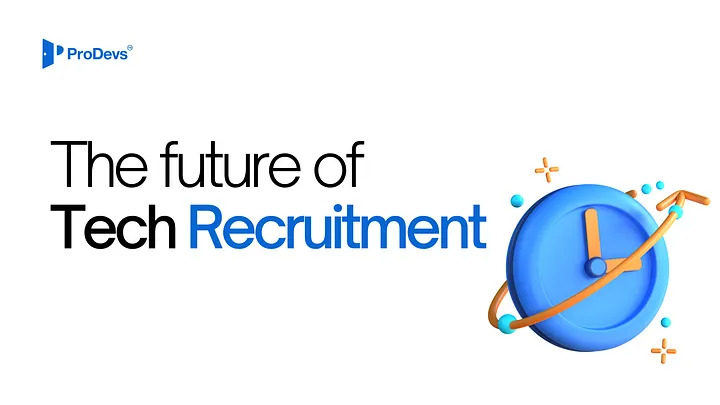12/03/20235 Mins read

Since the start of the coronavirus outbreak, several businesses around the world have incurred significant losses. Even during the initial weeks of the pandemic, 43% of small firms were forced to close temporarily. As a result, active employment decreased by around 50% across numerous industries, affecting many aspects of our life.
Those who saw the possibilities in doing business online early on did not suffer as much as others and even increased their income during this time. Global e-commerce sales climbed by over $1 trillion in 2019 (an increase of 4 percent since 2018). An appealing and user-friendly interface is required for any software product or website. Front-end frameworks come in handy in this situation.
If you’re still undecided about which front-end framework to use for your project, we’ve put up a comprehensive comparison of the most popular options. Continue reading to learn more!
Before we get into the specifics of the finest front-end frameworks for building software applications, let’s go over some basic terms. The front-end of a web or mobile application is the part with which the user may engage and communicate directly.
To put it another way, it’s everything a user sees when they open your website or mobile app. The front-end framework is a technology that assists developers in creating user interfaces for software products. APIs, CSS pre-processors, and other components are frequently included.
Trends in front-end application development do not usually appear on the field by chance. They’ve been evolving for a long time. The developer must wait several years for this or that technology to become available.
It’s also possible that one technology gives life to another, which matches market opportunity and meets future requirements, resulting in faster and more efficient software development.
We’ve gathered a list of the most popular front-end frameworks to consider for your next project in this brief article.
Angular is a powerful front-end framework developed by Google. It was first released in 2010 and then republished in 2016, and it immediately gained popularity among front-end developers all around the world. It is free, open-source, and extensively used to construct cross-platform applications of various scales and complexity, just like the two frameworks stated above. It’s also one of the few TypeScript-based frameworks out there.
For almost a decade, Angular has had a significant advantage over its competitors, so it’s no surprise that it has a sizable community and knowledge base. This front-end framework is commonly used to create large-scale applications in a variety of industries, including banking, finance, and healthcare.
Yehuda Katz built Ember.js, an open-source JS framework, in 2011. Ember.js, like Angular, can integrate any adjustments and instantly see how they look in real-time. With its advantages, developers may create genuinely adaptable web and mobile applications.
Ember Framework is a framework for building web applications.
Ember.js is updated and maintained regularly to ensure that it continues to meet modern demands. It is, nevertheless, one of the most challenging frameworks to master. Junior engineers just do not have enough time to master the fundamentals in today’s fast-paced industry, and as a result, interest in Ember.js is dwindling year after year.
The most popular front-end web framework among software developers worldwide is React.js, which was created by Facebook and is actively maintained by the developer community. This open-source front-end JavaScript library is commonly used to create user interfaces of various levels of complexity.
For those looking to create high-load web applications with several pages and features, React.js is the ideal option.
jQuery is the second most popular open-source, cross-platform framework, having been released in 2006. jQuery is a Javascript framework that allows you to create visually appealing and user-friendly user interfaces.
Even the fact that jQuery’s popularity hasn’t waned in recent years could be considered proof of its effectiveness.
This Javascript framework is a great choice for individuals who wish to construct JavaScript desktop applications, handle events, and apply animation effects. jQuery simplifies and shortens the code. However, it is not suited for constructing a dynamic application because the enormous quantity of additional JS code will make it too heavy. It would be preferable to use contemporary frameworks with simplified JavaScript, and more reusable components for such reasons.
The framework was designed while React.js was just getting started and Angular was becoming too complex for prototyping. The Vue.js framework is a synthesis of the greatest characteristics of various technologies. On the one hand, Vue.js, like React.js, is straightforward to use and learn. In contrast to Angular, it is a two-way bond.
It allows programmers to design both tiny and large-scale apps. Despite their versatility, many developers still prefer popular frameworks that are more in demand in large corporations and businesses. Perhaps the explanation is that Vue.js used to have unsafe updates, leaving both developers and clients puzzled and concerned about the framework’s long-term performance.
In 2022, front-end development will continue to be in great demand. However, there is an optimal tool for each function, and in our case, that tool is a framework. Because everything in the world has advantages and disadvantages, selecting a framework requires careful consideration of the goals and characteristics accessible.

The tech industry is constantly evolving, and tech recruitment is no exception. In recent years, there have been a number of significant changes in the way that tech companies recruit and hire employees. As we look to the future, it’s important to consider how these trends will continue to shape the tech recruitment landscape.
09/03/2023 | 4:41 PM
By Yetunde Hassan

So, you’ve successfully navigated the initial hustle of launching your startup. You've got a solid product, a growing user base, and now, you’re ready to take things to the next level by seeking investment. But what exactly are investors looking for when they scrutinize your financial statements?
22/05/2024 | 4:57 PM
By Yetunde Hassan

Hire vetted and smart African talents today

651 N Broad St. Suite 206, Middletown, DE 19709, USA

89 Monaco Court, Brampton, ON L7A 1X2, Canada

2nd Floor, 10 Hughes Avenue, Alagomeji, Yaba, Lagos, Nigeria.
Copyright © 2025. ProDevs Outsourcing Inc.